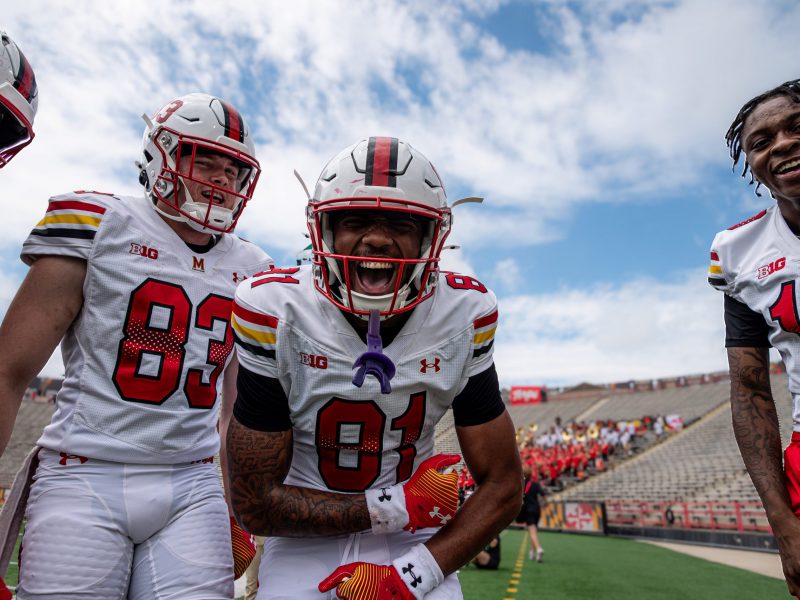
Photo courtesy of soundonsight.org
An artist sits at his kit and tunes up. He asks his director a question, perhaps about a quick tempo change, and then begins to play a free jazz rhythm. These are the first sounds heard in Alejandro González Iñárritu’s Oscar-nominated Birdman, but the image is one that would be right at home in another Oscar favorite, Damien Chazelle’s Whiplash.
The former is the story of a washed-up Hollywood superstar, best known for playing the titular superhero, attempting to revive his career by writing, directing and starring in a Broadway adaptation of Raymond Carver’s What We Talk About When We Talk About Love. The latter film is about a tenacious young musician and the tyrannical band director who pushes him to be one of the “greats.” Both films prominently feature the musical stylings of jazz drums — Whiplash in its plot and Birdman in its score.
Despite its dubious reputation in its genesis and the pop credibility it held in its heyday, jazz has vastly different connotations today. It conjures images of incredible technical skill, an effortless mastery of craft, a thing of value consumed by the cultural elite. In other words: true art. Yet it has other, darker connotations as well: elitist, unbending, stubborn — a dying art form unwilling or unable to change to fit the times. Birdman and Whiplash are acutely aware of all of these connotations and use them to explore the very core ideas of art and performance and the timeless question: Why does art, or anything, even matter?
In Birdman, Riggan Thomson (Michael Keaton, Need for Speed) is attempting the supposedly impossible: the crossover from low-art to high-art. The critically acclaimed method actor he brings in believes him to be a hack, a snooty journalist questions his authenticity, a renowned theater critic tells him he and his kind are ruining the theater. Yet none of these criticisms, no matter how powerful and respected the voices behind them may be, utterly destroy him the way his daughter does with the singular reminder: “None of this is important. You don’t matter.” She doesn’t believe he’s putting on this play for the sake of art; he’s doing it because he wants to feel relevant.
Riggan struggles with his own understanding of why this play matters to him as well. His daughter tells him he doesn’t exist because he doesn’t have a social media presence and his character in the play states he doesn’t exist because nobody loves him.
His constant failures and shortcomings chip away at his existence until he is just barely carnate enough to float away on a breeze, soaring over New York City.
It is only in his attempt to do something real, to shoot himself in his final performance in the play, that Riggan finds purpose. As he says the final lines of the play — “I don’t exist.” — one finally gets the sense that this is not Riggan pretending to be a character; this is Riggan finally confronting his own feelings of despair and purposelessness, and his performance gets rave reviews because it is real. It is not a facsimile, not a recreation; it is a real moment.
Whiplash, despite being technically and formally more traditional than Birdman, is much more ambiguous in its discussion of art and purpose. Andrew (Miles Teller, Two Night Stand) is pushed to the absolute limits of physical and emotional endurance to please his director, Fletcher (J.K. Simmons, Break Point), all in the pursuit of the elusive and disturbingly vague goal of being “great.”
The key scene to understanding this film is Andrew’s dinner with his aunt and uncle and their two sons. His musical achievements, though he worked himself raw to accomplish them, are quickly overshadowed by the empty achievements of his cousins. Andrew cannot handle the lack of recognition for his own accomplishments and lashes out. There follows a rapid-fire discussion of “the definition of success.” For Andrew, it is that same idea of being “great,” whether that leads to being broke, drunk, alone, injured, empty, even dead.
Fletcher similarly pushes and abuses his students in the pursuit of making them “great,” but what exactly “great” means to him is unclear. Surely it’s more than just winning a college jazz competition? Fletcher is like the theater critic in Birdman, bitter at the changing tides of artistic taste and determined to fight back against the status quo. He determines what is great and what isn’t. This makes sense as his idea of “great” seems to be so arbitrary and unattainable.
The ending scene of Andrew’s incredible solo is cathartic on a visceral level. There’s a sense of victory in Andrew finally earning Fletcher’s approval. But the more it sits, the more disturbing the ending becomes. Fletcher’s tyrannical and abusive ways “worked” and have created someone who is “great.” Did Andrew transcend anything or create a work of art that speaks to the very soul? Or did he just become the soulless music machine that Fletcher wanted him to become, devoid of happiness, personal fulfillment, friends, stability or any of the other things one might define success as?
Andrew loses everything that is himself for the sake of art, while Riggan finally learns to become himself through his art. Birdman, amazingly, is an uplifting tale about a man who, through artistic expression, shears himself of all the emotional detritus that’s weighing him down and learns to be a better human being. Whiplash is a cautionary tale of a man who thinks that being better than others makes one good. Art is a way for human beings to discover truth and collect all the swirling, colliding, paradoxical forces inside ourselves and arrange them in a sensical way, like drums on a set, waiting to be played.


